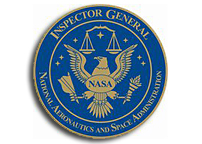OIG Report: NASA’s Use of Blanket Purchase Agreements

WHY WE PERFORMED THIS AUDIT
Vigorous competition between vendors is the cornerstone of an effective Federal acquisition system because it saves the taxpayer money, improves contractor performance, and promotes confidence in the system’s fairness. Executive Orders, statutes, and regulations direct Federal contracting officials to seek competition to the fullest extent possible in procurements, including when purchasing goods and services using blanket purchase agreements (BPA or agreement). A simplified method of acquiring goods and services, BPAs establish terms and conditions (including prices) between a Federal agency and vendors for commonly used goods and services.
NASA uses two types of BPAs General Services Administration (GSA) schedule agreements, which incorporate the terms and conditions of an underlying GSA contract, and NASA-specific agreements to purchase items such as copier paper and services such as engineering research support.1In fiscal years 2011 and 2012, NASA obligated more than $248 million through 5,529 BPA orders.
We initiated this audit to determine whether NASA was maximizing opportunities for savings by establishing GSA schedule agreements with multiple rather than single vendors, requesting price discounts on GSA schedule agreements, and obtaining sufficient competition on delivery orders issued under NASA-specific agreements.
WHAT WE FOUND
NASA contracting officials have not maximized competition when awarding BPAs. They did not consistently seek price reductions on orders, established single- rather than multiple-award agreements without appropriate justification, and failed to perform required annual reviews to ensure established BPAs still represent the best value to the Government. We found deficiencies in NASA’s use of both GSA schedule agreements and NASA-specific agreements issued by Goddard Space Flight Center’s (Goddard) Advanced Manufacturing Branch (Branch).
NASA Contracting Officials Using GSA Schedule Agreements Did Not Maximize Competition or Seek Vendor Price Discounts. Our sample included 23 orders obtained using 14 different GSA schedule agreements. We found deficiencies in 12 of these 14 agreements. Specifically, for 9 of the agreements NASA contracting officials established single- rather than multiple-award agreements without preparing written justifications or failed to request price discounts from vendors when establishing the agreements. For all 12 agreements, contracting officials failed to conduct required annual reviews. These deficiencies occurred because contracting officials were unaware of requirements or wanted to avoid the additional effort required to compete orders.
NASA’s Use of Blanket Purchase Agreements December 16, 2014IG-15-009 (A-14-002-00)We believe NASA missed potential cost savings by establishing single-award agreements, not requesting price discounts, and not conducting annual reviews. Multiple-award agreements encourage vendors to offer better prices and annual reviews provide an opportunity to assess whether the BPAs still represent the best value and identifies opportunities for seeking additional discounts. Moreover, we found that when contracting officials requested discounts they often were able to achieve substantial savings. For example, in February 2009 NASA awarded a 5-year, $23.6 million BPA to a contractor to provide aircraft maintenance services at Wallops Flight Facility (Wallops). As part of the original award, Wallops contracting officials requested and received discounts in labor rates approximately 7 percent below GSA schedule prices. As a result, NASA saved more than $735,000 on labor costs over the 5-year period of performance.
Goddard Contracting Officials Issued Orders without Sufficient Competition. Our random sample included 34 NASA-specific BPA orders awarded by the Advanced Manufacturing Branch, which operates an in-house fabrication shop to manufacture parts for Goddard’s science and engineering programs and projects. When the shop lacks the capacity to complete an order, it often turns to a NASA-specific BPA to acquire the needed part. We found that 27 of 34 orders (79 percent) reviewed were awarded with no more than two conforming bids, and 20 (59 percent) were awarded with a single conforming bid. In our judgment, the Branch missed opportunities to obtain lower costs by not seeking greater competition.
WHAT WE RECOMMENDED
To comply with FAR requirements and maximize NASA’s savings opportunities when using BPAs, we recommended NASA’s Assistant Administrator for Procurement establish guidance or procedures to ensure contracting officials prepare written justifications for single-awards, request vendor discounts more frequently, and conduct required annual reviews. We also recommended the Goddard’s Advanced Manufacturing Branch Head make process improvements to increase the likelihood the Branch will receive more conforming bids on BPA solicitations.
In response to a draft of this report, NASA management concurred with our recommendations and described responsive corrective actions, including issuing reminders to contracting officers about the need to comply with certain FAR requirements. Because we consider management’s proposed actions responsive to our recommendations, the recommendations are resolved. We will close the recommendations once the actions are completed and we have verified that the reminders are sufficient to ensure compliance.
1GSA schedule BPAs follow procedures defined by Federal Acquisition Regulation Subpart 8.4, “Federal Supply Schedules,” and NASA-specific BPAs follow Part 13, “Simplified Acquisition Procedures.”








